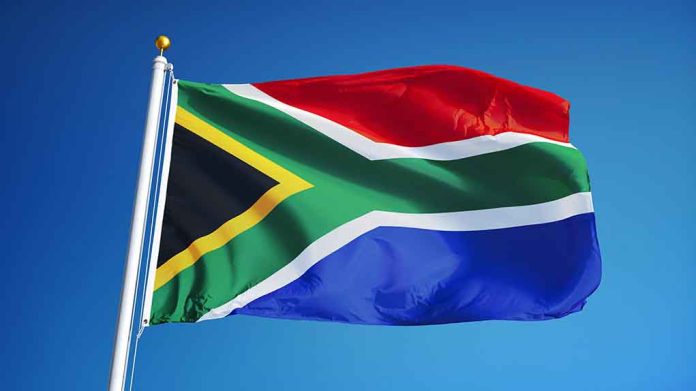
President Trump has taken swift action against South Africa’s land seizure law, cutting US aid and offering refugee status to targeted white farmers as the controversial legislation threatens to ignite racial tensions reminiscent of Zimbabwe’s economic collapse.
Key Takeaways
- South Africa’s new Expropriation Act, signed January 23, 2025, allows government land seizure without compensation under certain circumstances
- President Trump has cut US financial aid to South Africa and issued an executive order offering refugee status to Afrikaner farmers
- The law’s supporters claim it addresses historical injustices, while critics warn it could replicate Zimbabwe’s disastrous land reform experience
- White South Africans, comprising just 7% of the population, currently own approximately 70% of commercial farmland
- The diplomatic row has escalated tensions between the US and South Africa, with President Ramaphosa scheduled to meet with President Trump
Trump Administration Takes Stand Against South African Land Seizures
President Trump has issued a stark warning about South Africa’s controversial Expropriation Act, which became law on January 23, 2025. The legislation empowers the government to seize private property, particularly agricultural land, with provisions allowing for zero compensation under specific circumstances. In response, the Trump administration has suspended American financial aid to South Africa and established a refugee program specifically for white South African farmers who face potential persecution under the new law.
In a direct challenge to South African President Cyril Ramaphosa, Trump’s executive order stated: “In shocking disregard of its citizens’ rights, the Republic of South Africa (South Africa) recently enacted Expropriation Act 13 of 2024 (Act), to enable the government of South Africa to seize ethnic minority Afrikaners’ agricultural property without compensation,” said President Trump, as reported by Al Jazeera.
Historical Injustice or Property Rights Violation?
Supporters of the legislation, primarily within the ruling African National Congress (ANC), defend it as necessary to address deep historical injustices. The stark reality of South Africa’s land distribution remains largely unchanged since the end of apartheid, with approximately 70% of commercial farmland owned by whites, who comprise just 7% of the population. This imbalance stems directly from colonial and apartheid-era policies that systematically dispossessed Black South Africans of their ancestral lands.
“The Expropriation Act intends to take the land and redistribute it, legally… We use this act as an opportunity to advance the cause [of activists] for land restoration and land justice.” stated Mzwanele Nyhontso, Land Reform Minister
The Ramaphosa administration has vigorously rejected accusations that the law targets white farmers or represents a form of racial persecution. In an official statement, Ramaphosa’s office asserted: “The recently adopted Expropriation Act is not a confiscation instrument, but a constitutionally mandated legal process that ensures public access to land in an equitable and just manner as guided by the Constitution.” The government maintains that the law will prioritize unused or abandoned land, not productive farms.
Opposition Warnings of Economic Disaster
Critics, including the Democratic Alliance (DA) and Freedom Front Plus, have launched legal challenges against the legislation, arguing that it undermines constitutional protections for private property. The Democratic Alliance specifically warned that “Every country has legislation to ensure a state can, with fair compensation, build public infrastructure, but this Act goes too far outside these accepted international norms,” highlighting the exceptional nature of South Africa’s approach compared to standard international practice.
“There’s a slogan that says… ‘the land shall belong to those who work the land’. I was 13 years old when I started working on the land and I’m over 60 now, and I still haven’t got land,” said Bettie Fortuin, Community Activist
Opponents of the legislation point to Zimbabwe’s disastrous experience with land reform as a cautionary tale. After Zimbabwe’s government seized white-owned farms without compensation in the early 2000s, the country experienced catastrophic economic collapse, hyperinflation, and food shortages. Once known as the “breadbasket of Africa,” Zimbabwe became dependent on food aid. Critics fear South Africa could face similar consequences if property rights are not respected.
International Implications and Diplomatic Tensions
The dispute has significant international dimensions beyond the bilateral US-South Africa relationship. Elon Musk, a key Trump ally with South African roots, has also criticized the law, claiming it threatens his business interests in the country. Meanwhile, relations between Washington and Pretoria were already strained by South Africa’s case against Israel at the International Court of Justice regarding actions in Gaza, a position firmly opposed by the Trump administration.
“The President of the United States, Donald Trump, issued an invitation to South African farmers, to Afrikaners, to come to the United States because the South African government is confiscating their land. The Expropriation Act is not a land confiscation [act], but they can accept the challenge and go to America,” said Mzwanele Nyhontso, Land Reform Minister
The tensions have reached a point where President Ramaphosa is scheduled to meet with President Trump to address the deteriorating relations between the two nations. The meeting will be closely watched globally, as it represents a significant test of Trump’s foreign policy approach toward Africa during his second term. For South Africa, maintaining positive relations with the United States remains critical for economic stability and international standing.


